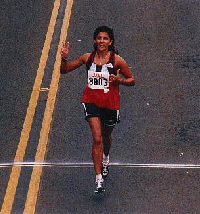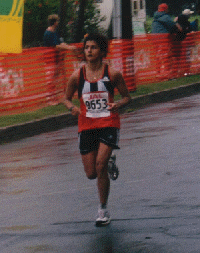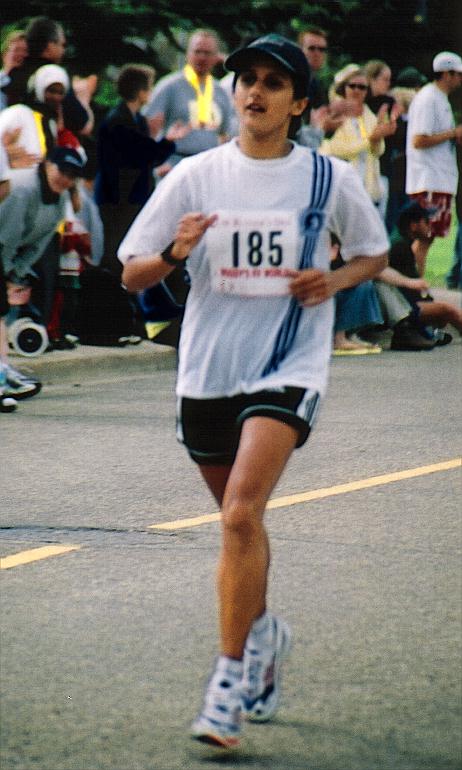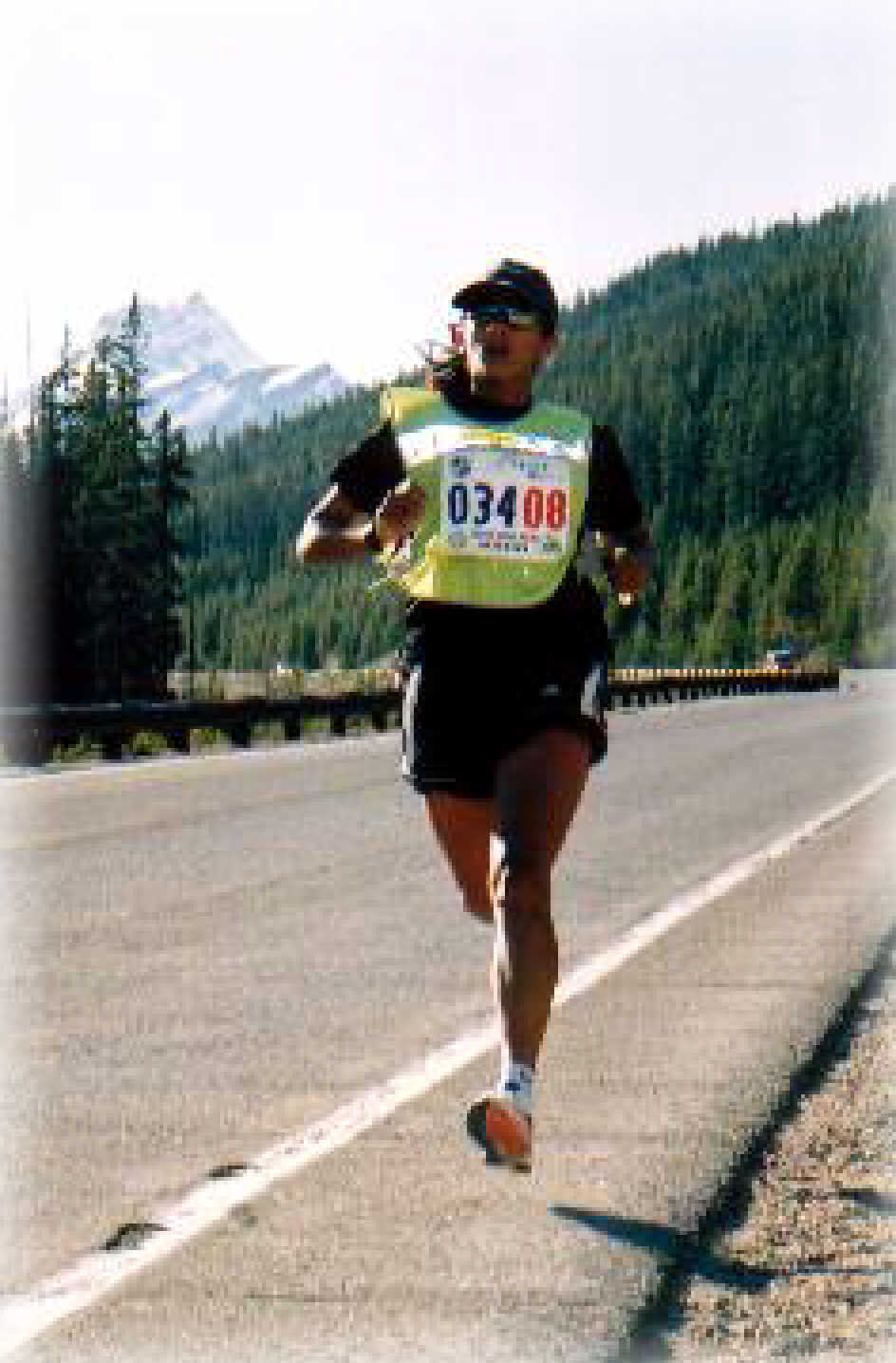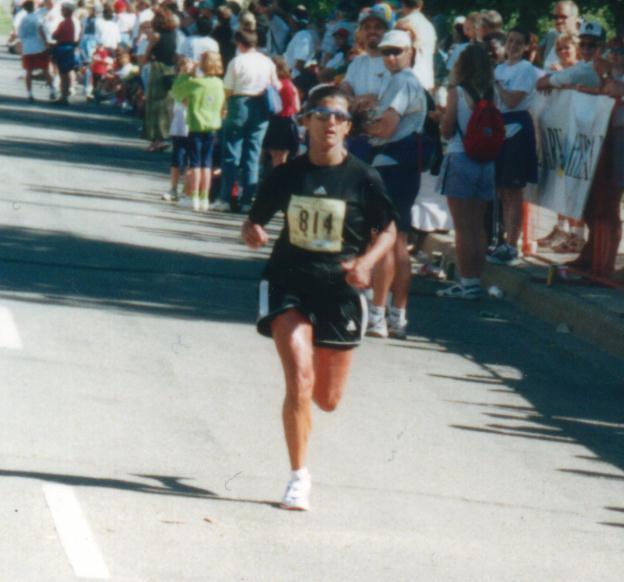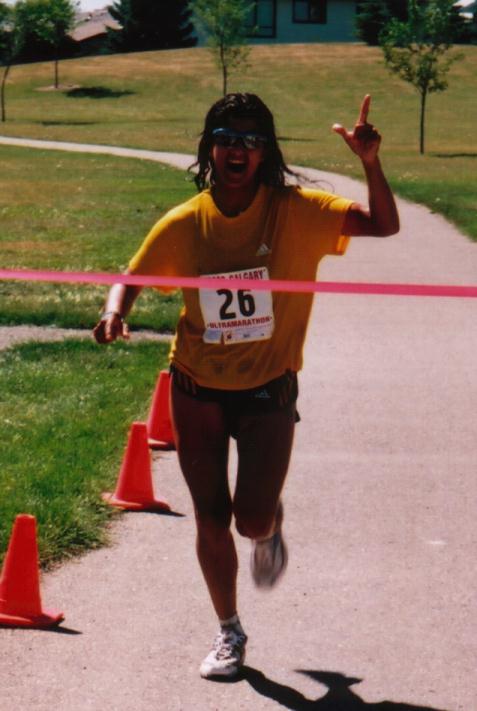| MENU |
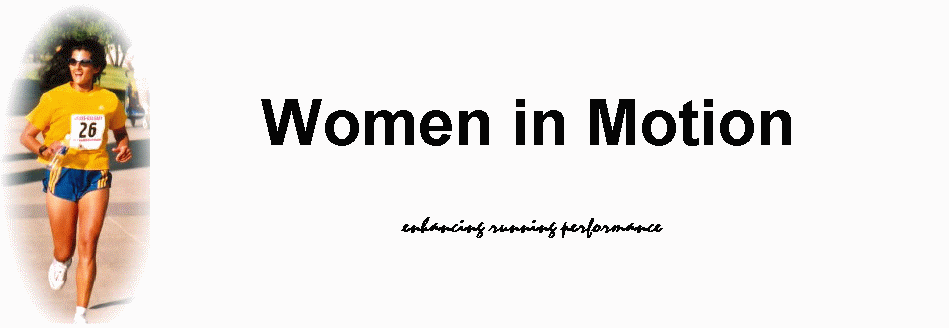
Personal Pressure
Personal
Pressure - Doing a Number on Ourselves This
article is dedicated to my wife, Fariyal and all runners
wanting to break a barrier. When
you ask a runner what their best time for a particular
distance is, there is normally an embarrassed pause,
perhaps some shuffling of the feet and finally a quiet
response. No matter what ability level, most runners are
never really satisfied with their personal bests. Even
right after a runner has gone out and set a new personal
record, in their mind they are recounting the race and
figuring out how they could have run faster. We at Women
in Motion are no different. As soon as the marathon is
completed the heart rate monitor is deprogrammed of its
lap interval times and the results entered into a chart.
And now the analysis of each race interval according to
its race pace is done. A
part of the reason for this is that no matter how fast we
run, there is always someone who can run faster. It is
really impossible to feel dominant as a runner, because
we all know the stopwatch tells no lies. Another
reason for the internal dissatisfaction comes from our
desire to attain certain personal goals. Perhaps someone
wants to break 20 minutes for 5 K. Or perhaps it is the
need to go under three hours in a marathon. A time of
02:59:59 seems a million times better than 03:00:01 in
this case, and yet 2 seconds can easily be caused by a
slight mismeasurement of the course or a crowded starting
line slowing the first part of the race, or a headwind we
have to fight in the second half.. Still, the barrier
exists in one's mind in a very real way. The
problem doesn't stop once you have broken through a
particular time barrier, though. If someone runs a
02:59:59, it becomes obvious just how far away they are
from a 02:59:00 marathon. So it doesn't matter what level
you are at or what times you are running, there are
always unattained time goals sitting out there in front
of you. Our
times are only part of the story. Weather, course
difficulty and other factors greatly influence our final
time. The next thing we look at is how we placed in the
race. Runners never seem satisfied. Failure to place in
one's age group may be reason to feel failure, no matter
how well the race was run or how fast the time. Upon
placing third in an age category, a runner may be
disappointed they didn't run a bit quicker and nip the
second place runner at the line. Winning an age group may
be only partially satisfying if you feel you could have
won the race. Even winning the race isn't enough, because
there may have been someone much faster who decided not
to show up for the race. It's
great that we all want to constantly improve and attain
new goals as runners. This is what motivates us in
training and racing. But, we should all be proud of our
achievements, too. Don't allow yourself to feel inferior
just because there are runners who are faster, who log
more miles each week, or who take home more medals and
trophies than you. Remember that there are always time
barriers in front of every runner. If you ran 03:08:23
and that was a good, strong effort for you, then feel
proud. Sure, you could have run faster. Nobody will ever
run the perfect race. So what? If
you permit yourself a little pride, and feel a bit of
satisfaction, you might just feel a boost of the old ego.
Maybe you'll feel a little more confidence at the
starting line of your next race. Maybe you'll even crash
though a barrier or two as a result. More importantly,
maybe you can relax and enjoy the effort a little more.
It's okay to stay humble, but there's nothing wrong with
a little quiet self-confidence. Women
in Motion -Gord Samson, adapted from an old article in
our collection to try to make my wife feel better. Page Updated February 6, 2000. |

